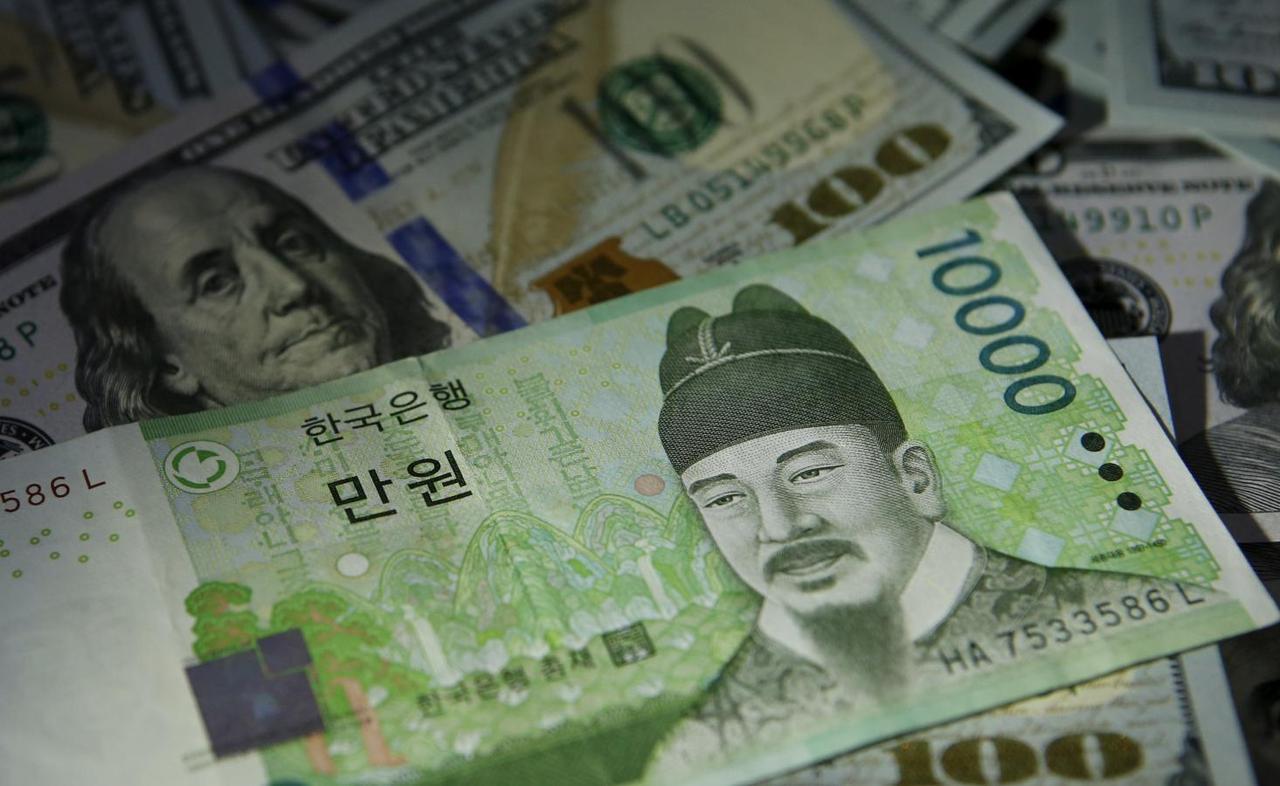 |
South Korean 10,000 won note is seen on 100 dollar notes in this picture illustration taken in Seoul, South Korea. (Reuters-Yonhap) |
South Korea’s currency surged to a 22-month high against the US greenback on Monday as Joe Biden’s election victory sent waves across the global financial market. After opening at 1,120 won against the US greenback, it was quoted at 1,113.9 won at Monday’s closing -- its highest level since Jan. 31, 2019.
The won is projected to grow stronger and breach the 1,100 won mark this year and even the 1,050 won level next year, the chiefs of the five major commercial banks here told Yonhap News on Sunday.
“Biden’s election would work in favor of a strong won trend as it would fundamentally lead to a weaker dollar and a stronger yuan,” said Hana Bank CEO Ji Sung-kyu.
Ji cited the expansion of the US budget deficit due to Biden’s tax and spending policies coupled with the US Federal Reserve’s pledge to keep interest rates anchored near zero as key factors that could fuel the weak dollar trend.
But the Hana Bank chief said the trend toward a stronger won would be limited. While Biden’s position toward China in the ongoing trade war would be “reasonable,” and would lead to the devaluation of the yuan, uncertainties in the global trade environment would linger in “the Biden era” and prevent the won from gaining “too much strength,” he added.
Other bank chiefs largely echoed Ji, with Shinhan Bank CEO Jin Ok-dong saying the resurgence of COVID-19 in the US and the EU could prompt fears of a double-dip recession, which in turn could limit the strong won trend.
And while the strong won trend would push foreign capital inflow into the local stock markets and invigorate stocks related to green energy and other business areas, it could weaken the cost-competitiveness of local exporters, experts noted. Exports account for about half of the nation’s economy.
“The strong won trend could weaken the cost-competitiveness of local exporters and firms need to draw new management and outbound shipment plans, while improving their efforts for better quality, designs and new technology,” Shin Hyun-han, a professor of finance at Yonsei University, said in a report released Sunday by the Korea Chamber of Commerce and Industry. He hinted that the exporters would have to brace for a more competitive market on the back of a stronger won.
While the stock market should see an inflow of foreign capital, it is apparently bound to lose some attention from local retail investors.
The weak dollar trend is likely to push local investors toward dollar-denominated assets, including US stocks, analysts said.
“A dollar-denominated asset is always useful because there will always be an opportunity to sell it at the right price despite the cycle of the global economy,” Kim Hak-kyun, head of the research center at Shinyoung Securities, said.
By Jung Min-kyung (
mkjung@heraldcorp.com)








